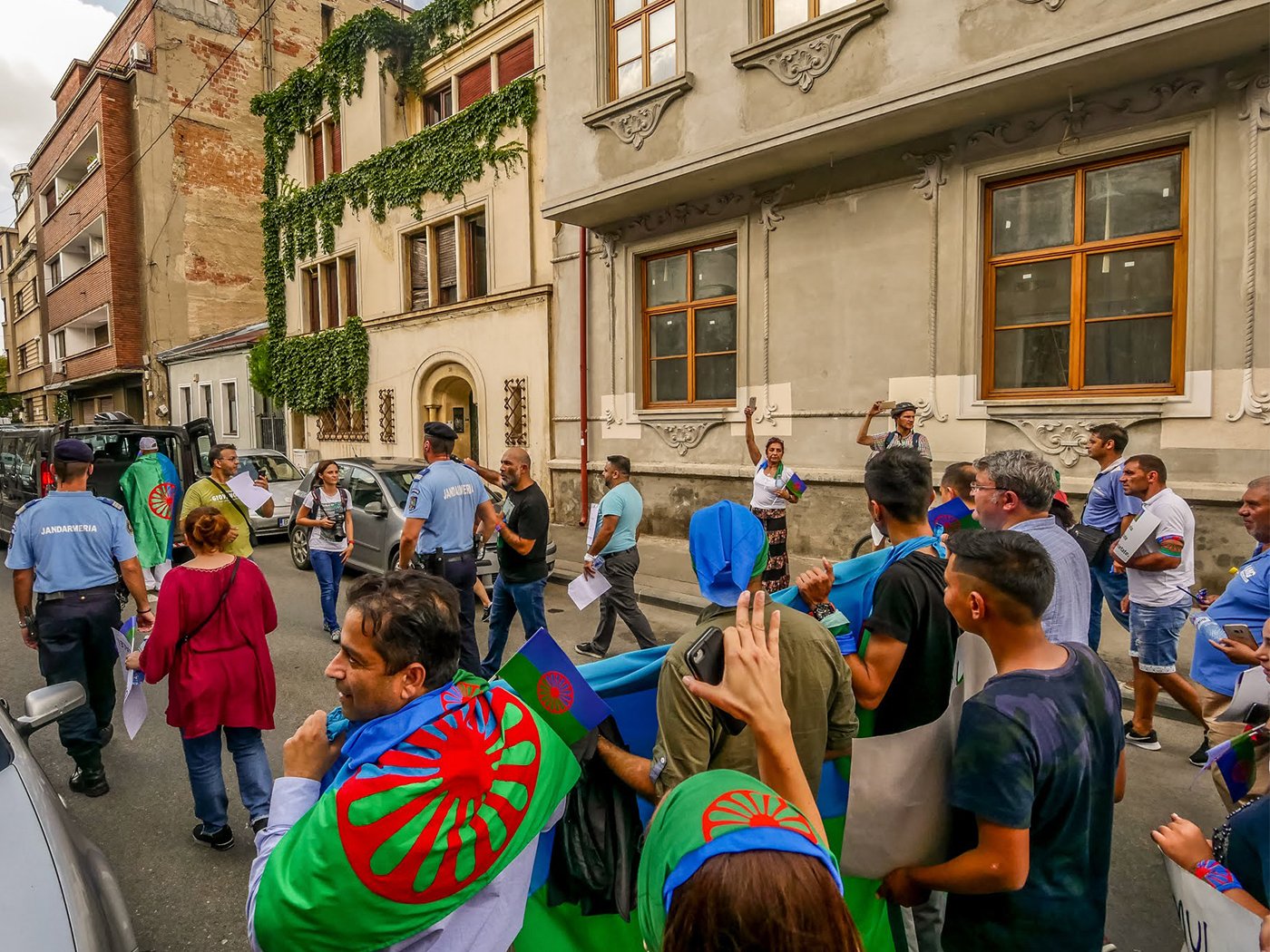Roma for Democracy reports a dramatic return of Roma voters to the ballot box in the second round of Romania’s presidential election.
An analysis by the Roma for Democracy Foundation (RFD) finds that Roma voters delivered one of the most decisive electoral margins in Romania’s May 2025 presidential runoff, where Nicușor Dan defeated far-right, pro-Russian challenger George Simion. Drawing on turnout data from 144 municipalities with significant Roma populations, the analysis documents the first large-scale electoral re-engagement by Roma voters in more than a decade.
A Historic Turnout Shift
Across the 144 municipalities where Roma voters make up at least 5% of the electorate, turnout rose by a weighted average of 5.71 percentage points between the first round (5 May) and the runoff (18 May). In the most severely disenfranchised areas—such as Turnu Măgurele (Teleorman County) and Răcari (Dâmbovița County)—where first-round turnout had dropped to just 23.99%, it increased by more than 27 points in under two weeks.
In municipalities with significant Roma populations alone, Nicușor Dan’s support surged from 26,460 votes in the first round to 131,862 in the second—a net gain of 105,402 votes. During the same period, George Simion’s vote count rose from 114,272 to 153,460—a much smaller increase of 39,188 votes. Of Dan’s 829,589 national vote margin, at least 15.89% (131,862 votes) came from municipalities with significant Roma populations.
According to RFD, what occurred on 18 May is the first documented instance in which a structurally excluded population shaped the national outcome of a Romanian presidential election.
“Roma voters were not just present—they were pivotal,” said Alin Banu, Executive Director of the Roma for Democracy Foundation Romania. “They re-entered the political arena not to affirm the prevailing system—but to impose limits on it. And in doing so, they redefined the conditions under which political authority can claim legitimacy in Romania’s evolving democratic landscape.”
This shift was accompanied by a marked increase in support for Nicușor Dan, which is likely linked to his being the only candidate to publicly acknowledge Roma exclusion by signing the "No Mandate Without Us" manifesto, which was issued by RFD to demand recognition of structural racism and exclusion as fundamental political issues. The manifesto did not seek promises of systemic change but required one minimal condition: public acknowledgement of Roma exclusion as a structural reality in Romania.
Simion refused to engage with the Roma electorate or respond to the manifesto. His silence was widely seen as disqualifying.
“Dan’s signature was not viewed as a promise of transformation,” Banu added. “It was seen as the minimum act of recognition. That alone helped shift turnout in communities where disengagement had been entrenched for years.”
In addition, Roma-led organisations such as RFD and ARESEL, along with other independent civic actors, took the field that had been abandoned by the parties and mobilised support for Dan, who had signed up to the Roma manifesto.
A Dual Democratic Mandate
Roma voters’ participation has created a dual mandate: one must now be fulfilled by President Dan within Romania; the other must be enforced by Brussels as a test of the EU’s commitment to democratic inclusion.
Dan has committed to the procedural reforms outlined in the “No Mandate Without Us” manifesto. These include:
- A Roma Presidential Advisory Council with permanent consultative status
- A Roma Democratic Compact to be implemented within the first year of office
- A National Roma Youth Fund to address structural economic exclusion
- Legal action against vote-buying and coercive brokers in municipalities with significant Roma-populations municipalities
- Formal participation of Roma organisations in national democratic and rule-of-law reforms
A Democratic Inflection Point
In municipalities long dominated by centre-left PSD-aligned brokerage structures like Partida Romilor, turnout remained low in both rounds—signalling a collapse of their mobilising power. Such forces could not reverse broader abstention by Roma voters, despite attempts to maintain control through coercion—including vote-buying through promises of targeted benefits such as emergency aid, public jobs or housing support, intimidation and conditions placed on access to local services. New legitimacy was forged elsewhere—by Roma voters on their terms.
“This wasn’t just a one-time vote,” said Banu. “Roma voters established a new threshold of democratic legitimacy: no future government can claim full authority in Romania without addressing the structural conditions of Roma exclusion.”
About Roma for Democracy:
Roma for Democracy (RFD) strengthens and expands the political voice and power of Europe’s 12 million Roma—half of whom are EU citizens. Despite their numbers, Roma remain vastly underrepresented and face structural barriers including vote buying, intimidation, discriminatory electoral laws and weak civic infrastructure. Modelled on political foundations in the United States and Germany, RFD defends democracy, free elections and civic rights for Roma across Europe. Its work focuses on three core areas: voter education, democratic dialogue and accountability, and political representation.

Roma Foundation for Europe
The latest

Serbia Must Amend Missing Persons Alert System to Protect Vulnerable Adults

Constitutional Review of the Šutar Law Confirms Serious Rule-of-Law Concerns

Europe’s Growth Depends on Roma Talent
Browse by category
Campaigns
Events
Facts
Press
Voices
For media inquiries:
[email protected]Sign up here so you don’t miss out on campaign updates, upcoming events and other news from the Roma Foundation for Europe and our network.
Sign up for our newsletter